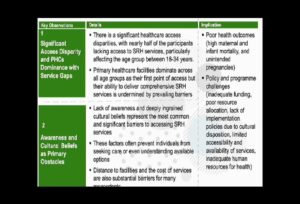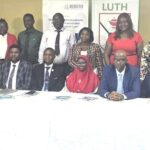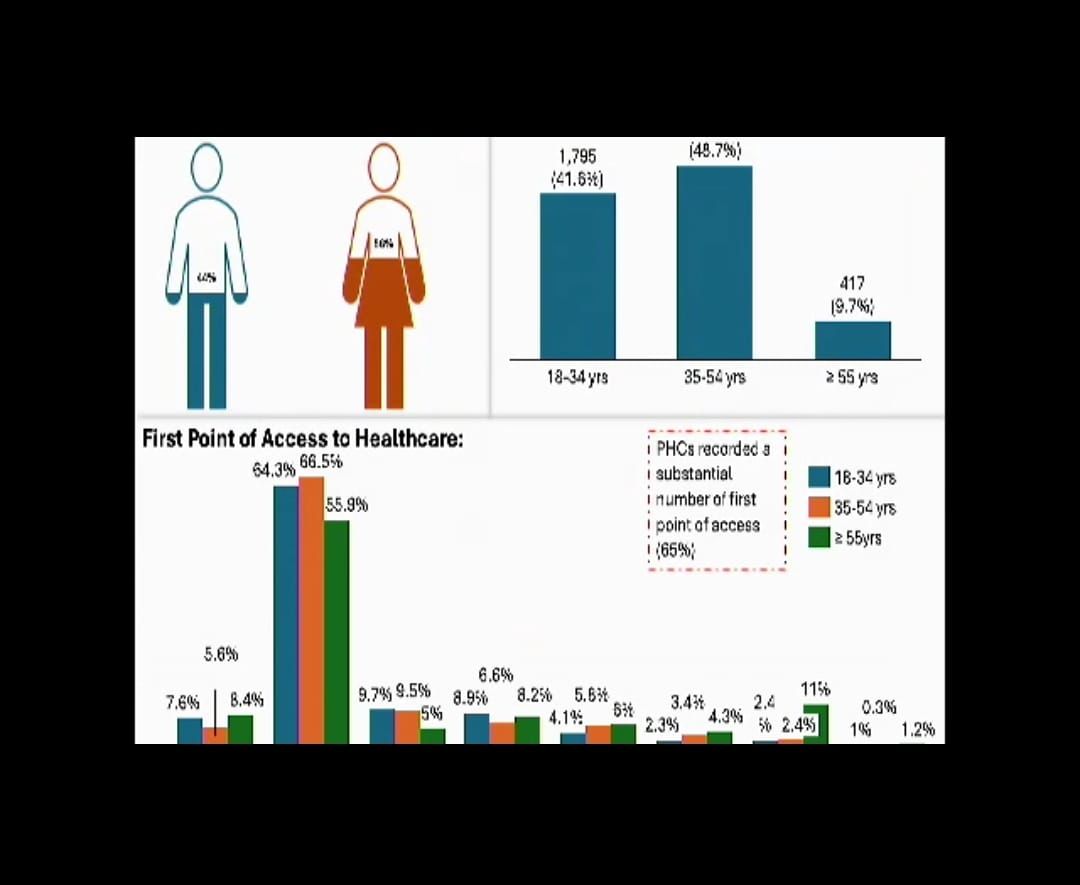By Abujah Racheal
The Integrated Community Listening Survey, conducted by Nigeria Health Watch, has revealed persistent barriers to Sexual and Reproductive Health and Rights (SRHR), especially among young adults and rural communities.
Ms Anwuli Nwankwo, Knowledge Management Lead, Nigeria Health Watch, disclosed this on Thursday in Abuja, at the National Policy Dialogue on Improving Adolescent Access to Sexual and Reproductive Health Services.
The News Agency of Nigeria (NAN) gathered that the survey was conducted between March and April 2025 in six states of Lagos, Ebonyi, Cross River, Kano, Niger and Borno, representing the six geo-political zones in Nigeria.
The theme of the event is, “Improving Adolescent Access to Quality Sexual and Reproductive Health Services”, organised by Nigeria Health Watch and its partners.
Nwankwo, in her presentation, said that this was despite the country’s longstanding commitment and programmatic investments in SRHR.

She said that the survey assessed access and barriers to SRHR.
“The cross-sectional study, which drew data from 414 participants, aimed to uncover the realities behind the stagnation in reproductive health progress in Nigeria,” she said.
Nwankwo at the finding’s presentation noted that 50 per cent of participants reported having access to SRHR services and the remaining 50 per cent did not.
She also said that younger individuals aged 18 to 34 faced more significant access challenges.
“Primary healthcare centres remained the first point of contact for most participants, yet many of these facilities could not provide comprehensive sexual and reproductive health services,” she stated.
The survey also identified cultural beliefs and lack of awareness as the most common barriers to accessing SRHR services.
Other factors she said included distance to health facilities, cost of services, inadequate funding and limited human resources within the health sector.
“These barriers were notably more prominent among respondents aged 35 to 54 who had previously experienced difficulty accessing reproductive healthcare.
“In spite the fact that 81 per cent of respondents said they had not faced any barriers, the remaining 19 per cent who did, pointed overwhelmingly to socio-cultural and informational obstacles,” Nwankwo said.
Alarmingly, she said that younger participants, those aged 18 to 34, were disproportionately affected, suggesting that Nigeria’s youth continued to face systemic challenges in realising their reproductive rights.
She said that the survey’s findings also highlighted that maternal and infant mortality, unintended pregnancies and policy implementation gaps were key consequences of these access barriers.
“While primary health centres dominate as first-access points, their effectiveness is undermined by entrenched systemic and social limitations.
“There is an urgent need for a more targeted and culturally sensitive approach,” she added.
Nwankwo urged the government and development partners to prioritise investment in awareness campaigns, community engagement and health system strengthening.
She further recommended that the country should expand SRHR education through culturally appropriate communication strategies.
She emphasised the need to strengthen the primary healthcare system to deliver integrated reproductive health services, in addition to calling for leveraging mobile health solutions to reach remote and underserved areas.
Nwankwo urged stakeholders to address the economic burden that prevents many individuals from accessing SRHR services.
While the study provided critical insights, she also acknowledged its limitations, such as lack of qualitative depth and the absence of health provider perspectives.
“We identified a lack of awareness as a common barrier, but we couldn’t fully explore why. Is it due to weak public campaigns or community gatekeepers restricting information flow?” Nwankwo asked.
NAN reports that without in-depth understanding of the study cautions, interventions risk being misdirected or ineffective.
However, the findings, experts and stakeholders said, offered a foundation for more data-driven, inclusive policymaking that could help bridge the access gap and strengthen Nigeria’s commitment to ensuring SRHR.
NAN recalls that the National Policy Dialogue hopes to confront the alarmingly high adolescent fertility rate of 117 births per 1,000 on girls aged 15 to 19.
It will also address the low up-take of modern contraceptives among sexually active, unmarried adolescent girls, which stood at just 7.8 per cent. (NAN)(www.nannews.ng)
Edited Francis Onyeukwu












